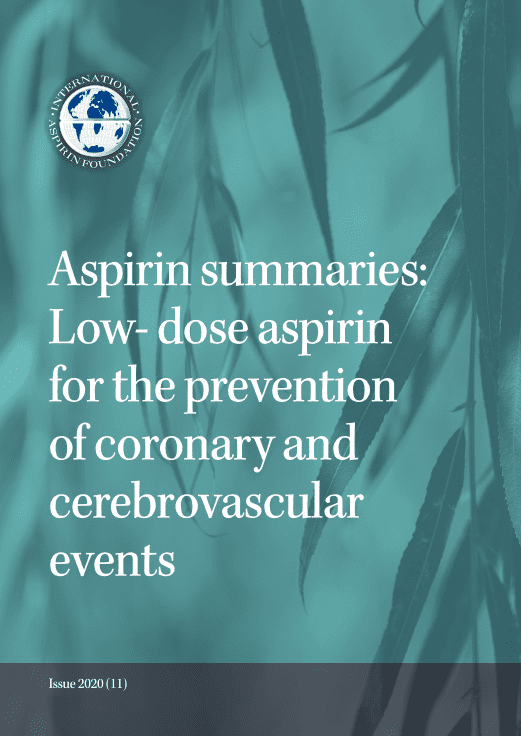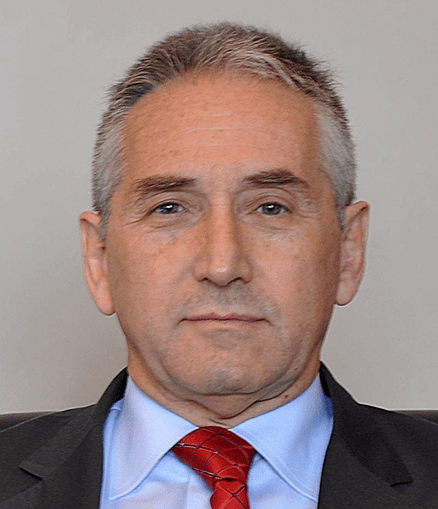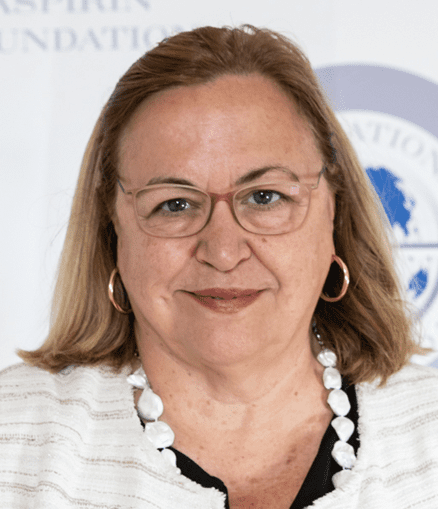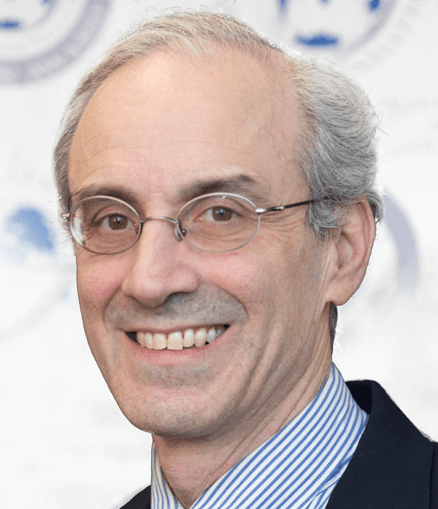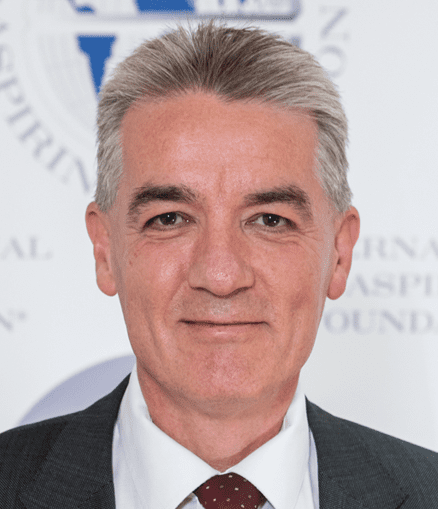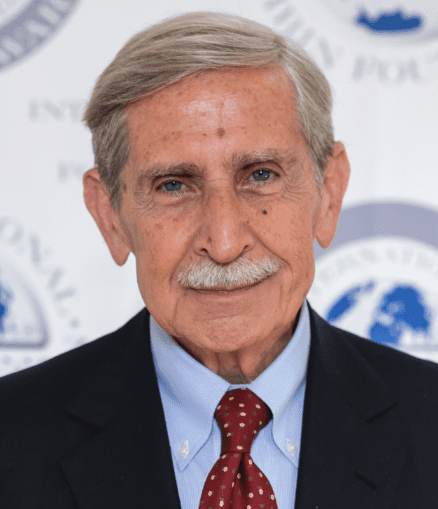Low-dose aspirin for the prevention of coronary and cerebrovascular events
This Aspirin Summary focuses on the research behind the development of effective, well tolerated, low-dose aspirin antithrombotic therapy for reducing the incidence of heart attack and stroke. This year’s 2020 International Aspirin Foundation’s Senior Science Award has been given to the scientists behind four of the first trials to increase our understanding of low-dose aspirin’s role in cardiovascular disease (CVD) prevention. The following summaries explore this work.
The long-term effects of low-dose aspirin after unstable coronary artery disease (The Research Group on Instability in Coronary Artery Disease [RISC] in Southeast Sweden).
Coronary artery disease (CAD) progresses due to atherosclerosis in which deposits of cholesterol clog the coronary arteries and when a plaque or cholesterol deposit bursts and causes a blood clot to block the supply of blood to the heart. Unstable CAD, [defined as unstable angina or non-Q wavemyocardial infarction (MI)] results from these processes. The RISC study group hypothesised that the risk of further CAD events could be reduced by using antiplatelet therapy and that this might not only decrease the risk of an MI by helping to prevent a clot but would also improve coronary blood flow and thereby diminish the symptoms of angina and the need for coronary angiography and revascularisation.
Although previous studies had demonstrated the protective effect of higher doses of aspirin [165- 1500mg] after MI and unstable angina and the RISC study group had shown 75mg/day of aspirin to be effective at reducing CAD events in the first 3months after an episode of CAD instability, this was the first study to look at the protective effect of 75mg/ day of aspirin on CAD events [MI, angina, coronary angiogram and revascularisation] over a period of long- term follow up.
This study was designed as a prospective, randomised, double-blind, placebo-controlled trial which included 796men [less than 70 years old] with unstable CAD in order to evaluate the impact of 75mg/day of aspirin over at least a year on further CAD events.
After one year the researchers found that when compared with placebo, low-dose aspirin treatment reduced the risk of having an MI or dying [risk ratio 0.52 (confidence interval 0.37 to 0.72)]. Severe angina needing a referral to coronary angiography was also reduced [risk ratio 0.71 (confidence interval 0.56 to 0.91)].
The authors state:
“The reduction of combined events- death, myocardial infarction and refractory angina – during 1 year of treatment with aspirin (75mg/day) was impressive and side effects were rare. Aspirin at this dose is extremely inexpensive and the treatment will be very cost-effective.”“
For further information please see:
Wallentin LC. Aspirin (75 mg/day) after an episode of unstable coronary artery disease: long-term effects on the risk for myocardial infarction, occurrence of severe angina and the need for revascularization. Research Group on Instability in Coronary Artery Disease in Southeast Sweden. J Am Coll Cardiol. 1991, Dec,18; (7):1587-93. DOI:10.1016/0735-1097(91)90489-v
The Dutch TIA trial study group compare a 30 mg daily dose of aspirin daily with a 283 mg daily dose for people who have had a TIA or minor ischemic stroke and find it as effective at improving vascular outcomes with less adverse events
In this randomised, double-blind, controlled clinical trial a 30mg versus a 283mg daily dose of aspirin was compared for effectiveness in reducing death from all vascular causes, stroke ormyocardial infarction (MI) in 3131 people who had experienced a transient ischemic attack (TIA) or minor stroke. The mean follow-up of study participants was 2.6 years.
In the group taking the 30mg aspirin dose the frequency of vascular events [death from vascular causes, nonfatal stroke, or non fatal myocardial] was 14.7% [228 out of 1555] versus 15.2% [240 out of 1576] in those on the higher 283mg daily dose. The low-dose aspirin group demonstrated amore favourable safety profile with slightly fewer major bleeding events [40 versus 53], significantly fewer minor bleeding events [49 versus 84] and fewer gastrointestinal side effects [164 versus 179].The incidence of major bleeding events was found to be low in both study doses with a 2.6 % incidence in the 30mg group and 3.2% in those taking 283mg.
It is important to note that when very low-dose aspirin is used it can take a few days to achieve maximal inhibition of platelets. Because of this a loading dose of 120mg of aspirin is recommended by the authors. The formulation of aspirin used to provide the 30mg dose in this trial was with 38mg of carbaspirin calcium (Ascal) which contains 30mg of aspirin and unlike plain aspirin this formulation is freely water soluble which may be critically important for the absorption of very low-dose aspirin.
The authors conclude:
“Our data indicate that 30 mg of aspirin daily is no less effective in the prevention of vascular events than a 283-mg dose in patients with a transient ischemic attack or minor stroke, and has fewer adverse effects.”
For further information please see:
VanGijn J and The Dutch TIA Trial StudyGroup. A comparison of two doses of aspirin (30mg vs. 283mg a day) in patients after a transient ischemic attack or minor ischemic stroke. N Engl JMed. 1991,Oct, 31; 325:1261-1266. DOI:10.1056/NEJM199110313251
The Swedish Aspirin Low-dose Trial (SALT) – 75mg of aspirin daily found to be effective for secondary prevention after TIA or minor stroke
The aim of the SALT study was to investigate the efficacy of 75mg of aspirin daily for the prevention of stroke and death after people had experienced a minor stroke or transient ischaemic attack (TIA). At this point in time doses of 300mg and above of aspirin were well established for this indication but the researchers were aware lower doses also inhibit platelet function with a probable lower risk of side effects. Experiments had shown that doses as low as 1-2mg/kg body weight was enough to inhibit platelet function in vitro.
This randomised, placebo-controlled study followed 1360 patients for a median of 32months and found that 75mg of aspirin daily resulted in an 18% reduction in stroke or death (relative risk 0.82, 95% confidence interval 0.67-0.99; log-rank analysis p=0.02) when compared with placebo. Secondary outcomes of stroke or two or more TIAs within a week of each other requiring a change in therapy or myocardial infarction showed a16-20% reduction when compared with placebo. There were 147 adverse events reported in those taking aspirin (22%) and 123 in the placebo group (18%). Interestingly gastrointestinal side effects (excluding bleeding) was only slightly more often seen in the aspirin group, however there was a significant excess in bleeding in those taking aspirin (p=0.04).
This was the first randomised controlled trial to show the beneficial effects of aspirin for secondary prevention after TIA or minor stroke at a dose of less than 300 mg daily. The risk reduction was similar to that found in data from a meta-analysis of trials completed by 1988. The researchers found that side effects however were less than in any previous long-term secondary prevention trial.
The authors put their finding into the context of other studies, including ISIS-2 (aspirin daily dose 162mg), the RISC study (aspirin daily dose 75mg), the Dutch TIA trial (no difference between daily aspirin doses of 30 mg and 283mg) and the data from the metanalysis of trials before 1988 (Antiplatelet Trialists Collaboration) and conclude that there is very little difference in CVD risk reduction with low-dose aspirin. They point out however that although a risk reduction of 17-25% is very useful it is not the sole answer to the problem and that risk factor reduction is also important as part of a combined strategy to prevent cardiovascular events.
The authors state:
“Thus, we have found that a low dose (75 mg/day) of aspirin significantly reduces the risk of stroke or death in patients with cerebrovascular ischaemic events.“
For further information please see:
Norving Bo and The SALT Collaborative Group. Swedish Aspirin Low-dose Trial (SALT) of 75 mg aspirin as secondary prophylaxis after cerebrovascular ischaemic events. The Lancet.1991, Nov,30; 338 (8779): 1345-1349. DOI:10.1016/0140-6736(91)92233-R
Aspirin reduces non-fatal ischaemic heart disease in high risk men.
This trial had four factorial treatment groups: active warfarin and active aspirin (n = 1277); active warfarin and placebo aspirin (n=1268); placebo warfarin and active aspirin (n=1268); and placebo warfarin and placebo aspirin (n=1272). A dose of 75mg daily in a controlled release formulation, was used for aspirin. The intention was that this would maximise thromboxane inhibition but spare prostacyclin. This low-dose aspirin use was found to reduce ischaemic heart disease (IHD) events by 20% (1-35, p=0.04)mainly due to a 32% reduction in non-fatal IHD (12-48, p=0.004). In this study low-dose aspirin use resulted in an absolute reduction in IHD of 2.3 per 1000 person years. The study found that combined treatment with warfarin and low- dose aspirin was more effective than using either agent alone. Bleeding side effects were however higher with the warfarin and aspirin regimen showing an increase in haemorrhagic and fatal strokes. In addition, there were 15 ruptured aortic or dissecting aneurysms in those taking warfarin compared with only 3 in those not on warfarin (p=0.01).
The study was carried out in men aged 49-69 years across 108 group practices within the Medical Research Council’s (MRC)General Practice Research Framework across the UK. Men in the top 20-25% of the risk score distribution were selected and screened for suitability.
This adds to the data for low-dose aspirin and because of its nationwide general practice setting the results are very representative of real life.
The authors state that:
“The results on combined treatment with both warfarin and aspirin on all IHD further support the likelihood that simultaneously modifying fibrin production and platelet function is more effective than either approach on its own.”
For further information please see:
Meade TW. And the Medical Research Council’s General Practice Research Framework. Thrombosis prevention trial: randomised trial of low-intensity oral anticoagulation with warfarin and low-dose aspirin in the primary prevention of ischaemic heart disease in men at increased risk. The Lancet. 1998, Jan,24; 351: 233-241.
It is also useful to read the correspondence section discussing this trial in The Lancet 1998; Apr, 18; 351: 1204-1207.
Commentary and 2020 update
Together these four trials not only show that low-dose aspirin is as effective and better tolerated than conventional doses; it also gives insight into how aspirin is working within this antithrombotic setting. Platelet thromboxane is completely suppressed by low- dose aspirin yet prostacyclin production by the vessel wall may still be partly preserved, important for the COX-1 protective role in the stomach lining.
The ground-breaking work of Lars Wallentin, Jan van Gijn, Bo Norrving and Tom Meade and their research teams established low-dose aspirin as an antithrombotic therapy within both cardiovascular and neurological clinical practice. In 2020 this work continues to inspire antithrombotic research and is still recognised in the latest guideline updates as demonstrated in a selection of 2020 publications to follow.
Aspirin immediately after TIA reduces the risk and severity of early recurrent stroke.
In this editorial, Professor Rothwell emphasises the risk of having a major stroke after a TIA or minor stroke, which can be as high as 10 % and explores the best ways to minimise this.
Rothwell explains that other single antiplatelet therapies have not been found to be better than aspirin during this acute post transient Ischaemic attack (TIA) or minor stroke high risk phase. He discussed the recent trial work comparing ticagrelor and low-dose aspirin (dual antiplatelet therapy) with low-dose aspirin alone (see below for summary Johnston et al. 2020).Whilst the combination of ticagrelor and aspirin did reduce the incidence of recurrent stroke or death it was associated with a higher risk of serous bleeding and there was no overall significant benefit in terms of disability or death.
Rothwell points out that the dual antiplatelet trials with aspirin and clopidogrel or ticagrelor have recruited only high-risk patients and of these only the highest risk group benefitted from dual antiplatelet therapy. Thus, bleeding risk from using two antiplatelet drugs may exceed the benefit in reducing subsequent cardiovascular events in everyday practice.
Rothwell concludes with a call for action:
“Regardless of which combination of antiplatelet drugs is favoured for the high-risk minority, all patients should receive aspirin immediately after TIA unless aspirin is contraindicated. Too many patients are sent home from emergency departments without this simple treatment that substantially reduces the risk and severity of early recurrent stroke.”
For further information please see:
Rothwell PM. Antiplatelet treatment to prevent early recurrent stroke. N Engl JMed. 2020, Jul,16; 383:276-278. DOI: 10.1056/NEJMe2018927
Dual antiplatelets (aspirin plus ticagrelor) have no significant benefit on disability or death
In the THALES (Acute Stroke or Transient Ischaemic Attack treated with ticagrelor and ASA for Prevention of Stroke and Death) trial, 11,016 patients were randomised to receive either low-dose aspirin plus placebo or low-dose aspirin in combination with ticagrelor immediately following mild-to-moderate non cardioembolic ischemic stroke or high-risk TIA. The aspirin was given in a loading dose of 300-325mg on the first day (within 24 hours of the event) and then at a dose of 75-100mg for 30 days.
Primary outcome events (a composite of stroke or death within 30 days) occurred in 303 patients (5.5%) in the combination antiplatelet group compared with 362 people (6.6%) in the low-dose aspirin plus placebo group (hazard ratio, 0.83;95% confidence interval [CI], 0.71 to 0.96; P=0.02).
The combination group had 276 patients with ischemic stroke (5%) compared with 345 (6.3%) in the single antiplatelet group (hazard ratio, 0.79;95% [CI], 0.68 to 0.93; P=0.004).However serious bleeding events were experienced in 28 patients (0.5%) taking combination antiplatelets when compared with 7 patients in the low- dose aspirin plus placebo group (0.1%) (P=0.001).The incidence of disability was not significantly different between the two groups.
The number needed to treat to prevent one primary outcome event with the combination antiplatelet therapy was 92 with the number needed to harm from a severe bleeding rate at 263.
For further information please see:
Johnston SC, Amarenco P, DenisonH et al. Ticagrelor and aspirin or aspirin alone in acute stroke or TIA. N Engl JMed. 2020, Jul,16; 383:207-217. DOI: 10.1056/NEJM0a1916870
A meta-analysis concludes that monotherapy with low-dose aspirin is comparable with P2Y12 inhibitor monotherapy for the secondary prevention of cardiovascular disease.
Chiarito and colleagues conducted a systematic review and meta-analysis of all randomised trials that compare P2Y12 inhibitors with low-dose aspirin monotherapy for the prevention of secondary cardiovascular (CV) events in patients with established cerebrovascular, coronary or peripheral artery disease with the aim of finding the optimal regimen.
The researchers found nine trials with a total of 42 108 patients that met their study criteria. The resulting meta- analysis showed that the risk of having amyocardial infarction (MI) was marginally lower in those taking any P2Y12 inhibitor when compared with aspirin (OR 0.81[95% CI 0.66-0.99]; I2=10.9%). The clinical significance of this was questioned by the authors particularly as they estimated that the number needed to treat to prevent one MI was 244.There was no difference in the risk of having a stroke, all-cause death, vascular death or major bleeding between the low-dose aspirin or any of the P2Y12 monotherapy regimens. Low-dose aspirin is more cost effective and still the drug of choice in current guidelines looking at secondary CV prevention.
In the Lancet comments section, Professor Robert Byrne, Director of Cardiology at the Mater Private Hospital, Dublin and Chair of Cardiovascular Research at the Royal College of Surgeons, remarks that the study was well designed to compare low-dose aspirin with P2Y12 inhibitors and relevant for the discussion around optimal antithrombotic therapy in people who have established cardiovascular disease.
Professor Byrne points out that low-dose aspirin monotherapy remains the standard-of- care for the secondary prevention of CV events and despite trial work to either replace low-dose aspirin with other antiplatelets or improve regimens by either adding a P2Y12 inhibitor or a low-dose anticoagulant such as rivaroxaban the results have not changed recent updates to the European Society of Cardiology guidelines where low-dose aspirin remains the drug of choice for secondary prevention in people with chronic coronary syndrome
He states:
“our impression is that the absence of substantial difference between the two approaches supports the use of aspirin-the drug is easier to take, associated with less non-compliance, fewer off-target side effects (compared with ticagrelor in particular), and less variation in treatment response (compared with clopidogrel), and is likely to be more cost-effective.”
For further information please see:
Chiarito M, Sanz-Sánchez J, Cannata F, et al. Monotherapy with a P2Y12 inhibitor or aspirin for secondary prevention in patients with established atherosclerosis: a systematic review and meta-analysis. The Lancet. 2020,May,09; 395:1487-95. DOI: 10.1016/SO140-6736(20)30315-9.
Byrne R. Aspirin for secondary prevention of cardiovascular disease. The Lancet. 2020,May,9; 395:1462-1463. DOI:10.1016/S0140-6736(20)30799-6.
Knuuti J,WijnsW, Saraste A, et al. 2019 ESC guidelines for the diagnosis and management of chronic coronary syndromes. EurHeart J. 2020, Jan,14; 41: 407-77. DOI:10.1093/eurheartj/ehz425.
NICE guidelines recommend low-dose aspirin for the primary prevention of cardiovascular disease in those at high risk of myocardial infarction or stroke.
Whilst the NICE clinical knowledge summary advises against routinely prescribing antiplatelet therapy for the primary prevention of cardiovascular disease, they do suggest considering it for those with a high CVD risk score. In deciding whether or not to use aspirin in this group of people it is important to consider that low- dose aspirin does not have a license for primary CVD prevention, that there are other ways to reduce CVD risk (e.g. smoking cessation or taking a statin tablet) and that whilst the evidence for benefit is limited there is a risk of doing harm and that it is important to discuss these risks and benefits with the patient.
NICE CKS Antiplatelet treatment. [updated August 2020; cited 2020 Oct 6] Available from: https://cks.nice.org.uk/topics/antiplatelet-treatment/
For further information about aspirin and current guidelines please see our UK, USA, European and Chinese guidelines summaries. https://www.aspirin-foundation.com/scientific-information/guidelines/

